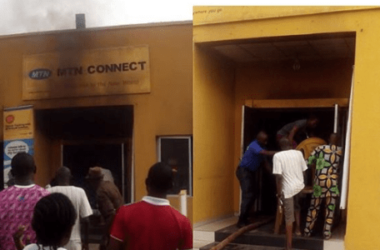The Senate, on Thursday, advanced four key Tax Reform Bills to their second reading. These legislative proposals aim to enhance state revenues by increasing the Value-Added Tax (VAT) share for states to 55%, while reducing the Federal Government’s portion to 10%.
The reforms also propose various tax exemptions and reductions designed to stimulate economic growth and ease financial burdens on individuals and businesses.
The bills were presented by Senate Leader Opeyemi Bamidele during the plenary session. According to him, the proposed changes seek to simplify tax administration, reduce the financial strain on small businesses, and harmonize tax collection processes.
“These reforms will make our tax system more transparent and equitable while supporting the economic aspirations of our states,” he stated.
Among the reforms, exports and essential commodities would be exempt from VAT, while company income tax would decrease from 30% to 25% for at least two years.
Additionally, individuals earning minimum wage or less would be exempt from Pay-As-You-Earn (PAYE) deductions. Small businesses with an annual turnover of N50 million or less would also enjoy tax exemptions, fostering a pro-business environment.
A critical component of the bills is the unification of multiple tax levies into a single development levy of 2%, which will fund initiatives like the student loans scheme by 2030. This consolidation aims to reduce the burden of double taxation on companies while ensuring sustainable revenue generation for development projects.
He said: “As part of a deliberate attempt to curtail the incidence of double taxation and multiplicity of taxes and levies, multiple taxes hitherto paid by companies under various tax heads namely 2.5 per cent education tax, and 0.25 per cent NASENI tax have been harmonized into a development levy of 2 per cent, which by 2030 will be applied to fund the newly established student loans scheme which will benefit many Nigerian youths.
“Unlike what is obtainable under the existing tax regime whereby the Federal Government takes a lion share of VAT revenues, it is proposed that the sharing formula should allow state governments share 55 per cent of VAT revenue from the current 15 to 10 per cent sharing formula.
“However, local governments’ share of VAT revenue remains unaffected. Relatedly, basic items consumed by Nigerian households such as food items, medical services and pharmaceuticals, educational fees, electricity etc. are exempted from VAT.
“Again, as part of efforts to ease the administration of income taxes and levies across the Federation, there is a reasonable effort made to consolidate core tax statutes and related tax legislations,” Bamidele explained.
The debate over the reforms drew mixed reactions from lawmakers. Senator Ali Ndume expressed concerns about the timing and constitutional requirements for implementing the reforms.
He argued, “Reforms are necessary if we have to move forward. I am not against reforms. And I am not against these reforms, tax reforms. My problem is the timing. The timing, as it is today, when you talk about reforms in Nigeria, whether good or bad, they’re misconceived.
“There are four or three things there. But, as you said, the time for that would be at the public hearing or when we pass it for second reading. But let it be on record that my problem with the bills is the timing. Number two, the issue of derivation made the reform contagious, contaminated, and contradictory in some cases. Because the Constitution has to be amended in order for some of these proposals to be effective. I’m glad we are doing a constitutional review. So even if it means reviewing the constitution. This is the general principle.
“As you said, or as the Senators decided, we should not throw away the baby with the bath water. I would have preferred we remove the baby and throw away the water, and that is to go with what the governors and NEC proposed: that these bills should be withdrawn, they are not saying that the bills should be killed. You withdraw the bill, bring it back to the National Assembly again after getting the buy-in of the governors and NEC and even our traditional rulers.”
“In conclusion, Mr. President, the third problem I mentioned is the people through the governors and then and the traditional rulers say that the bills should be withdrawn, make some necessary amendments. And then bring it back and we can pass it in 24 hours. That is my position, Mr. President.”
Conversely, Chief Whip Senator Mohammed Monguno disagreed, emphasizing that the legislative process, including public hearings, allows for stakeholder input.
He stated: “With all due respect to Senator Ndume, I beg to disagree with you that these bills should be withdrawn first and consultation should be held with the Nigeria Governors Forum and traditional rulers.
“We have a procedure which is clearly and ambiguously stated in our Rule book for the process of lawmaking. And the Constitution, in a very clear and unambiguous tab, gave us the power to regulate our proceedings in Section 60. Pursuant to Section 60 of the 1999 Constitution as amended, we get these rules to ourselves in order to guide our proceedings. And then the process of lawmaking is very clear and unambiguous as per this book.”
“That second reading, it will be now transmitted to the Committee for Public Hearing. In the course of the public hearing, Nigerians of all walks of life, of all groups, will come and aggregate, including the governors and traditional rulers, are free to come and ventilate their opinion.”
Senator Seriake Dickson also voiced support, highlighting the potential for states to benefit from improved VAT allocation and derivation principles. He pointed out that the reforms address long-standing issues, such as the allocation of taxes to the states where economic activities occur.
Senator Dickson said: “Tax revenue is something that I fully support. I am aware that some issues have been raised, and that is legitimate in a country of diverse people, cultures, and expectations. All we are expected to do is to harness all of these and enact laws in the national interest, which I believe, following our rules.
“At the committee stage, during the public hearing, anybody who has anything to say will be invited to say it, as the Chairman of the Committee has said. Now, there are issues I am concerned with. Some of these issues that have been raised are also as a result of insufficient consensus-building and consultation prior to the introduction. It’s understandable.
“As a former governor, while some governors were interested in some of these, some expressed concerns. That is legitimate. That consultation should have taken place. And I believe between now and at the end of our legislative activities, more consultations will happen. But that does not detract from the essence of the legislation that have been sent to us.
“For example, there is emphasis on derivation according to taxation. And the attempt now is to encourage states to be productive.
“I am concerned about where I come from, from the experiences you and I have, where oil workers are flown onto oil platforms in Eket and Ibeno in Akwa Ibom, or flown into Bonny and other areas in River State, or flown into Brass in Bayelsa, and in the Southern Niger area, and in Delta State, in Ogoni and Forcados.
“We are interested that this is an opportunity for the taxes from those oil workers to be calculated and paid to the oil-producing states where those activities are generated. Now the gains are being calculated and paid where the head office is located, as has been the case, where the tax is registered.
“And from the general principles underlying this bill, there is a move and a commitment by the executive to address that issue of revenue derivation, to ensure that payee taxes, even for the oil workers that are flown in and flown out every day after their work, be calculated and paid. If that is done, it is a good move that should be supported.
“When we get to the committee stage, we’ll look at the specific details but there’s nothing wrong in saying that the telephone calls that are made in Bayelsa or Akwa Ibom or Sokoto or Kano, the VAT on those things that are consumed, be calculated and paid to those states. And we are told that that is the essence of these bills. And there’s nothing wrong about it.
“Because VAT is a consumption tax, it is not a production tax. Those who are in the states who consume services, the VAT accruing to those should be calculated and paid. I’m sure when we look at the details, we’ll see whether there’s enough mechanism to guarantee transparency and accuracy in terms of administration.”
Following extensive discussions, Senate President Godswill Akpabio referred the bills to the Committee on Finance, chaired by Senator Sani Musa. The committee has been tasked with conducting a public hearing and presenting its findings within six weeks. The public hearing will include contributions from experts, state governors, traditional rulers, and other stakeholders.
“The Senate is committed to delivering tax reforms that reflect the aspirations of Nigerians and support sustainable development,” Senator Akpabio assured during his closing remarks.










